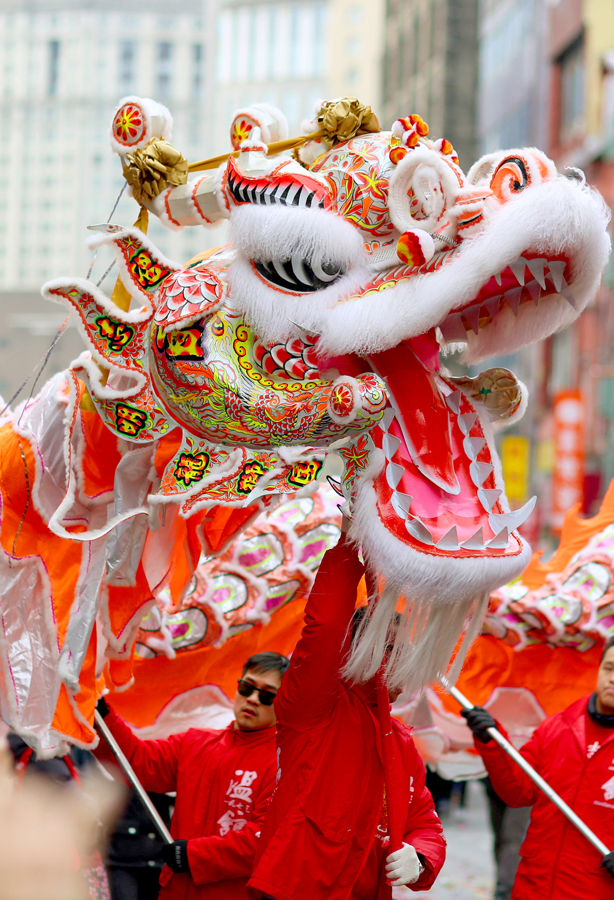Unlike the traditional Gregorian calendar, the lunisolar calendar is based on the cycles of the moon. The Lunar New Year occurs at sunset on the day of the second new moon after the winter solstice, falling anytime between January 21 and February 21. In 2024, the Year of the Dragon (specifically the Wood Dragon) will commence on Saturday, February 10. Celebrated by millions of people across Asia and around the world, the traditional Lunar New Year festivities last for 16 days, starting from New Year’s Eve and ending with the Lantern Festival. Want to get in on the fun? Here are five fantastic and fascinating celebrations to welcome the Lunar New Year.
San Francisco, California
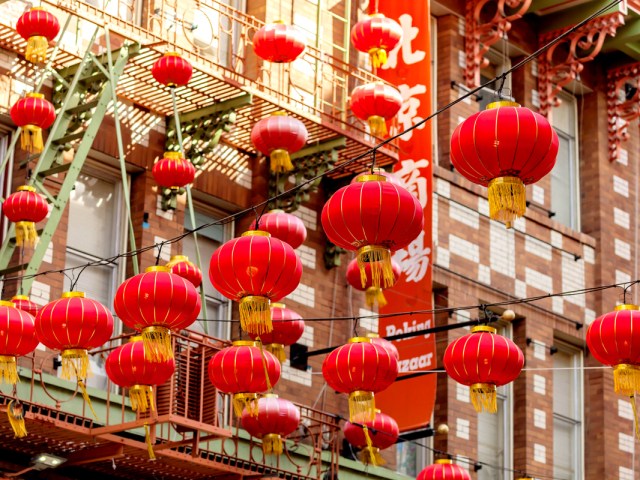
It’s no surprise that California’s city by the bay goes all-out for Lunar New Year: After all, San Francisco is home to one of the largest Chinese populations outside of Asia. The city’s historic Chinatown neighborhood is the oldest community of its kind in North America and the largest outside of Asia. More than 3 million people line San Francisco’s hilly streets for the city’s spectacular Lunar New Year parade, which features over 100 entrants — from acrobats to bands and even an enormous golden dragon that stretches nearly 30 feet and requires 100 people to operate. Other events include a flower market, fun run, beauty pageant, and the Choy Sun Doe ceremony, when thousands of laisees (traditional red envelopes) containing a chocolate gold coin are passed out to children.
Singapore
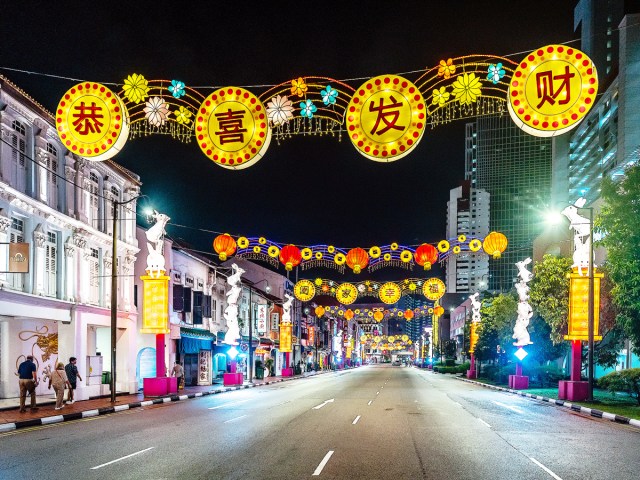
Started as a street parade in 1973 to celebrate the new year, Singapore’s Chingay has taken on a life of its own, becoming one of the world’s biggest celebrations and an annual cultural touchstone for the island nation in Southeast Asia. The word chingay (妆艺) is derived from a term in the Hokkiern Chinese dialect that refers to the art of costume and masquerade. Thousands of elaborately outfitted performers, dazzling floats, fire, and water combine to create a spectacle as colorful and multicultural as Singapore itself.
New York, New York
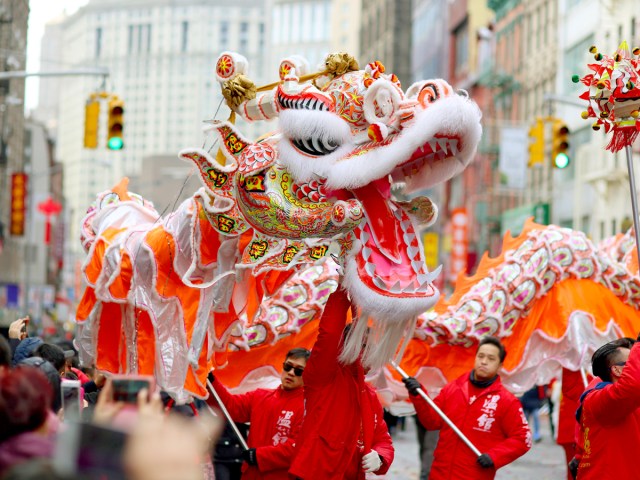
New Yorkers know how to make some noise, and the noise from firecrackers is said to drive away restless ghosts. So on the first day of the Lunar New Year, thousands gather at Sara D. Roosevelt Park on Manhattan’s Lower East Side for the Better Chinatown Society’s New Year Firecracker Ceremony and Cultural Festival. More than half a million firecrackers are set off to scare away the spirits, and the noise is followed by ribbon dances, musical performances, and lots of delicious street food.
Seoul, South Korea
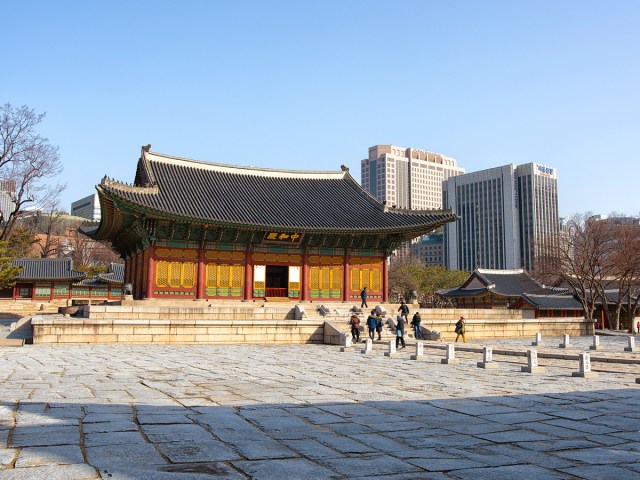
At the Korean Folk Village, a living history museum and tourist attraction on the outskirts of Seoul, the Lunar New Year (called Seollal by Koreans) is marked with the Fortune Party. The celebration features traditional music, along with folk games, dancing, and fortune-telling. Tteokguk, a traditional rice cake soup, is shared among festival goers. Other rituals are performed to ensure good luck in the coming year, including daljiptaeugi, a burning ceremony to bring about a good harvest and peace.
Hanoi, Vietnam
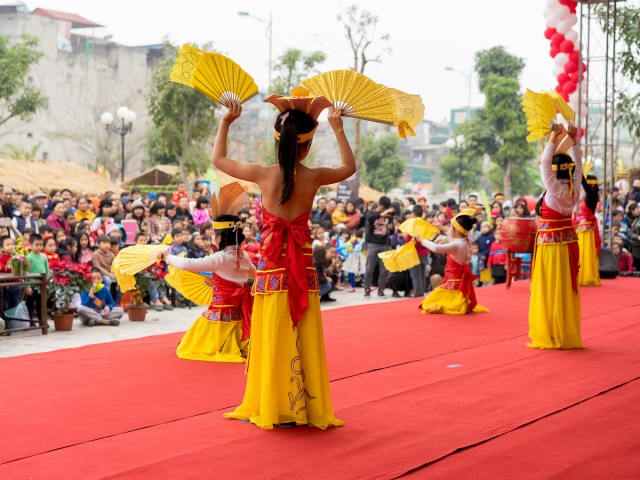
Tết Nguyên Đán — commonly shortened to Tết — marks both the Lunar New Year and the arrival of spring in Vietnam. The festival is considered the country’s most important holiday. Elaborate fireworks displays occur all over the capital, but the aerial show over Hanoi’s Hoàn Kiếm Lake is especially enchanting, with 15 minutes of illuminations over the scenic lake in the heart of the city’s graceful historic quarter. If you don’t want to brave the crowds lining up for the show, book a balcony room at the charming Heart Hotel, which overlooks the lake.
More from our network
Daily Passport is part of Inbox Studio, an email-first media company. *Indicates a third-party property.






